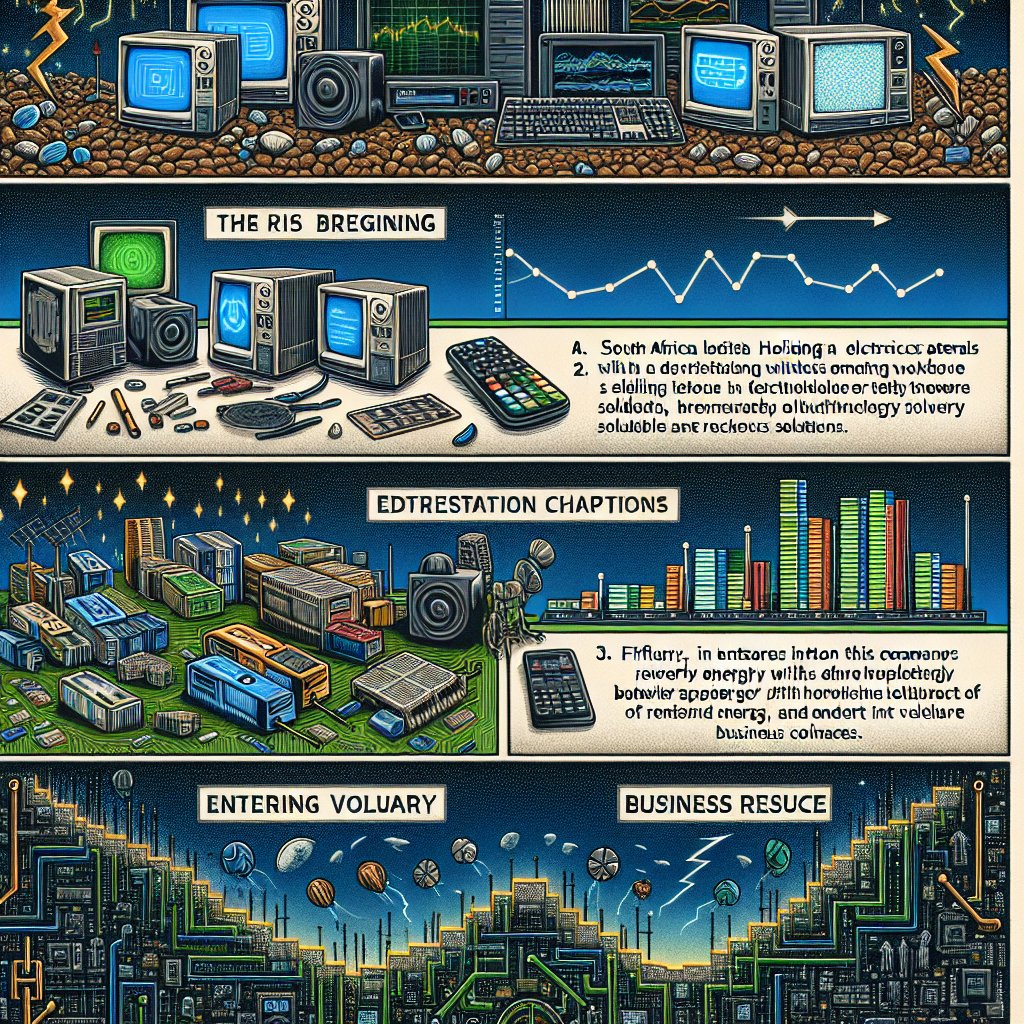Image created by AI
The Fall of Ellies: From Market Leader to Business Rescue
In the unforgiving realm of business, the rise and fall of companies often serve as a parable for many. For Ellies Holdings Limited, a once-prominent South African electronics group, the story is no different. What began as a flourishing enterprise has, over the span of a mere ten years, spiraled into a financial abyss, now standing on the precipice of potential collapse.
Ellies, best recognized for its consumer goods and involvement in South Africa's switch from analog to digital television, has seen its share price nosedive by 99% in the past decade. As of late, the organization announced entering business rescue proceedings, a sobering move that acknowledges the reality of being technically insolvent – its total liabilities surpassing its assets.
A glance at the company's genesis reveals a tale of ambition and progress. Founded in 1979 by the visionary Ellie Salkow and starting with a tiny workforce, Ellies initially catered to the television market, selling aerials in Johannesburg. Its reputation flourished, and with it, a diversification of products throughout the nineties including remote controls and satellite TV accessories under its Elsat brand, which quickly gained renown.
The new millennium saw the brand diversifying further into renewable energy and backup power solutions, underlining its innovative culture. The year 2007 was a milestone when Ellies was listed on the Johannesburg Stock Exchange's Alternative Exchange, and soon after, in 2010, it transitioned to the main board, issuing its first dividend.
At an all-time high, its shares were once valued over R9.50, bolstered by the buzz surrounding its role in the digital terrestrial television (DTT) roll-out in partnership with Altech EUC. Investors held Ellies in high esteem, anticipating lucrative prospects. Yet, as the government muddled the DTT migration, faith in Ellies waned, triggering a dramatic 80% share price slump between 2013 and 2014.
The subsequent years weren't kind. The search for fresh revenue streams was fruitless, and by 2019, the stock had plummeted to 10c per share. In a controversial move in 2023, Ellies attempted to acquire Bundu Power, a generator and solar product specialist, for R202.6 million. This venture was poised to be financed through a rights offer and a debt facility, but it collapsed as the financial sector retracted support amidst Ellies' dwindling market cap and continual losses.
The admission into voluntary business rescue signals a distressing chapter for the company. It's a move that, while offering a structured attempt at recovery, also reveals the dire state of affairs: the latest half-year results showed a loss of R106.5 million, 205.2% worse year-on-year, with liabilities overshadowing assets to a point where solvency becomes a distant dream.
This narrative serves as a cautionary tale about the volatility of markets and the vitality of innovation and agility in business strategies. The story of Ellies, once a market darling, is now an austere reminder that success is ephemeral, and without constant evolution, even the mightiest can stumble.










